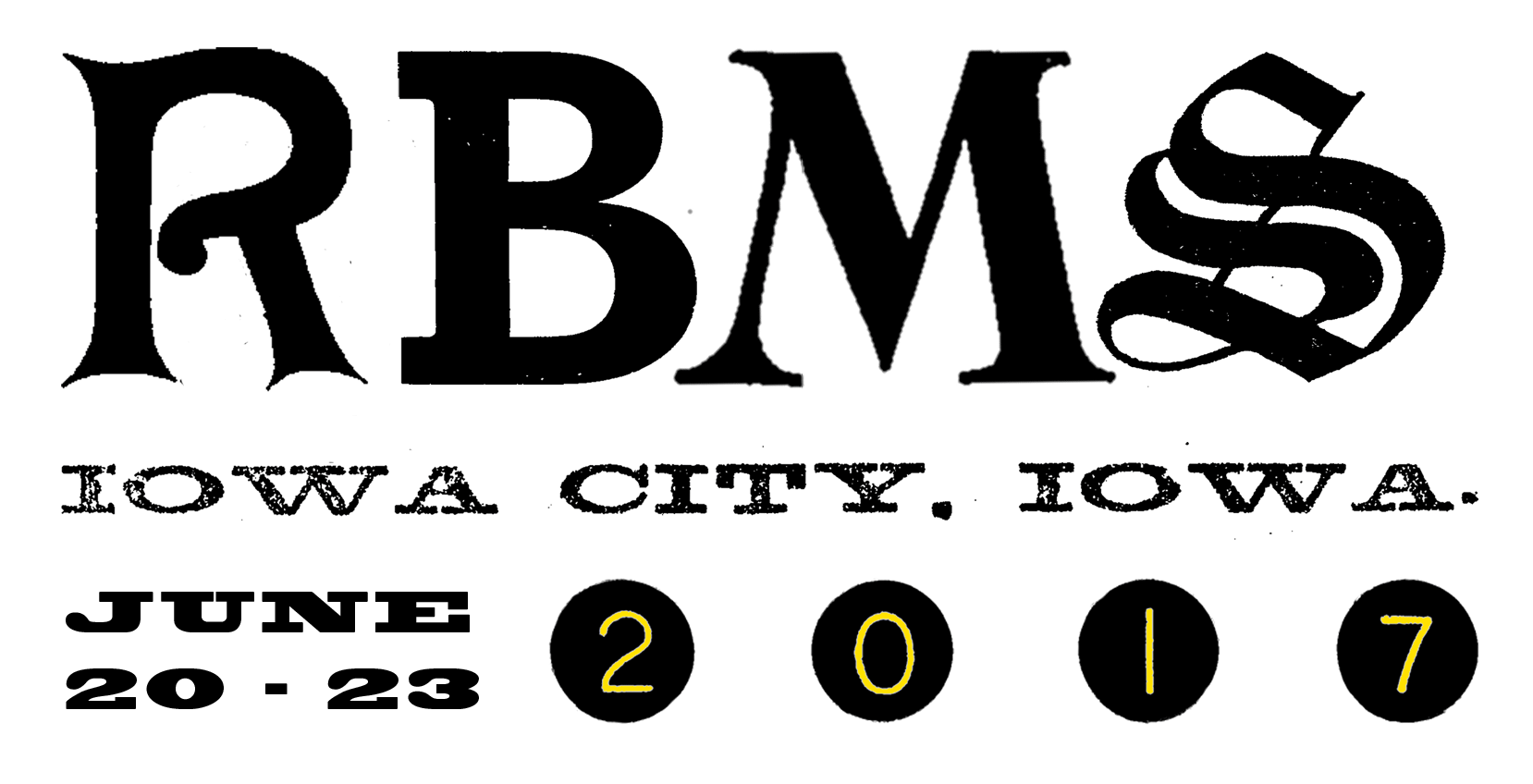Conference Seminars (part 2)
In last month’s blog, Sarah Horowitz described how seminars differ from other programming at RBMS conferences and what the process of proposing and selecting seminar topics entails. How else can you contribute to the seminar-style programming at conferences?
Once a seminar topic has been accepted, an organizer is selected. The organizer is not necessarily, but can be, the same person as the proposer, and is the one who bears primary responsibility for developing the content of the seminar. The organizer identifies and recruits speakers; together they refine the content and structure of their presentations, with the organizer taking the lead on ensuring that the theme is thoroughly covered and that the seminar contains significant educational content. The organizer is also responsible for communicating with presenters about conference requirements, identifying equipment needs, and providing text describing the seminar and presenters’ bios for the various conference publications (print and online).
Organizers who are not members of the Seminars Committee will be assigned a liaison from the Committee. A liaison is responsible for communicating routinely with an organizer to make sure they understand their responsibilities and are meeting all requirements for developing a cohesive and meaningful educational experience. The liaison also works with the organizer to make certain they meet deadlines set by the Seminars Committee.
If the organizer does not want to act, or is unable to act, as moderator for the seminar, they are responsible for recruiting a moderator whose role is to guarantee that the seminar runs according to plan, keeping speakers to their agreed upon time limits and orchestrating the Q&A portion of the program. Depending on the format, the moderator may provide a brief introduction to the topic before introducing the presenters. A moderator, in short, is a sort of “master of ceremonies” as the seminar unfolds and during the Q&A portion when they facilitate discussion between presenters and attendees according to ALA policy.
Finally, an on-site coordinator from the Seminars Committee works with and supports the moderator to ensure that any special requirements (room set-up, equipment, etc.) are met and to interface with the local arrangements personnel to address quickly any issues. The on-site coordinator is responsible for reporting the number of attendees to the Seminars committee chair in a timely fashion. Together the moderator with the on-site coordinate work to keep the program on schedule and ensure that audience members are given sufficient time to engage with presenters.
So, as you can see, seminar programs are a real team effort, and the process of developing and presenting a seminar requires the efforts of a several people performing important and distinct roles. For more information about contributing to RBMS seminars, click here.
–Ellen R. Cordes
Head of Technical Services
The Lewis Walpole Library
Yale University
